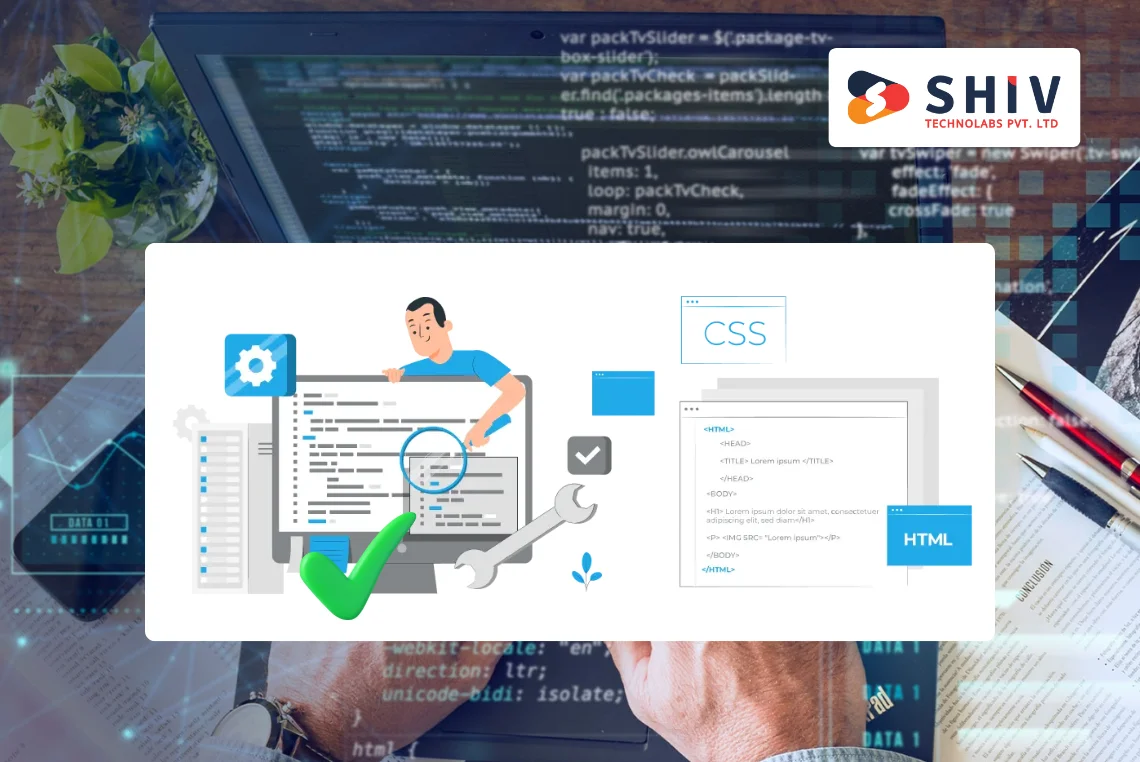Table of Contents
Toronto’s startup scene grows fast, with new ventures launching across fintech, retail, health, and SaaS. As a trusted software development company in Toronto, we see founders outgrow generic tools very quickly. Teams want speed, control, and reliable growth paths that off-the-shelf platforms rarely deliver at scale.
Many teams struggle with scalability, workflow automation, and customer experience once product-market fit arrives quickly. Departments patch tasks with spreadsheets, copy data between tools, and lose context across channels and teams. That friction hurts delivery speed, weakens reporting accuracy, and slows hiring across engineering, sales, and support.
Ready-made tools work well for common needs but struggle with unusual models or regulated workflows. Vendors deliver shared roadmaps, leaving gaps when your requirements differ from mass-market patterns and templates. Workarounds pile up, user training grows harder, and product decisions drift away from core business goals.
Custom software bridges those gaps with features shaped to your data, teams, and operational priorities. Many founders adopt custom software for startups in Toronto to gain control and predictable growth paths. These tailored software solutions for startups help you move faster, integrate tools deeply, and protect future flexibility.
What Are the Main Differences Between Custom Software and Ready-Made Tools?
The biggest contrasts appear in ownership, scalability, integration depth, and how decisions shape future releases. With custom builds, you direct priorities and pacing; with subscriptions, packaged software solutions for startups follow the vendor’s calendar. That control matters when compliance rules change or partners require specific data handoffs and process steps.
Costs differ as well; subscriptions look low at first, then rise with users, modules, and overages. Custom software shifts spending toward planned milestones, with clear sprints and measurable results tied to revenue. This approach supports digital transformation for startups by aligning investments with the stages that matter most.
Integration depth matters when you rely on CRMs, ERPs, billing, payment gateways, and partner APIs every day. Custom platforms expose clean interfaces, map data fields precisely, and keep ownership of logic inside your codebase. Subscription tools add connectors, yet complex flows still require manual steps, exports, or extra middleware layers.
Support also differs; custom teams know your stack, data, and goals, so fixes land faster. With subscriptions, you share queues with thousands of accounts, which slows critical changes during busy seasons. That difference becomes critical during launches, audits, and seasonal traffic spikes across markets in Toronto.
Custom vs Ready-Made Tools
| Feature | Custom Software | Ready-Made Tools |
|---|---|---|
| Ownership | Full ownership | Subscription-based |
| Scalability | High | Limited |
| Integration | Fully adaptable | Restricted |
| Cost | One-time investment | Ongoing monthly fees |
| Support | Personalized | Standardized |
In short, custom builds fit your model, connect cleanly with partners, and grow without painful compromises. Ready-made tools deliver speed to start, yet trade flexibility and control for convenience and shared features. That trade-off shapes costs, data quality, and how quickly you can respond to market shifts.
Risk profile changes, too; you control releases, access controls, and testing gates across development and production. Subscriptions release on their schedule, which can affect workflows, audits, or customer commitments without warning. Custom control lowers surprises and helps teams plan capacity, training, and testing with confidence ahead.
Why Do Toronto Startups Prefer Custom Software?

Toronto founders move fast and need software that fits their model, not generic templates at scale. Custom builds put priorities, integrations, and release timing under your control, so growth plans stay on track. With custom software for startups in Toronto, teams keep momentum while shaping tools around customers, markets, and regulations.
Does Custom Software Offer Better Scalability and Flexibility?
Startups adjust pricing, onboarding, and channels as traction grows across quarters and markets in Toronto. Custom platforms add modules, roles, and rules without waiting on roadmaps or change cycles, protecting pace. That agility helps hit release windows, meet partner requirements, and react quickly to validated customer feedback.
A fintech team can introduce new gateways, fraud signals, and settlement rules for specific regions and banks. An ecommerce brand can connect couriers, tax services, and loyalty tools while keeping a clean order record. APIs differ, so custom code shapes payloads, retries, and errors to keep data stable daily.
Versioning and release control also improve with custom stacks designed for iterative delivery in small batches. Teams can stage features behind toggles, run pilots with selected customers, and roll back safely when needed. That control reduces risk during promotions, audits, and seasonal peaks in Toronto markets and major product launches.
How Does Custom Software Improve Workflow Efficiency?
Manual steps cause delays, rework, and costly mistakes across sales, finance, and customer support teams. Custom software automates handoffs, validates entries, and triggers actions, so people focus on valuable work each day. Dashboards reflect your model and show live metrics that help managers act faster with fewer meetings.
When screens match your process, training shortens and new hires reach full speed sooner across functions. Clear workflows reduce support tickets and handoff confusion, freeing senior staff for growth projects and partnerships. Better data quality brings reliable reports for forecasts, hiring plans, and investor conversations during active fundraising rounds.
What Are the Benefits of Custom Software for Small Businesses?
Small teams track budgets carefully and want returns that rise with revenue, not subscription headcounts over time. Custom builds target features that cut waste or drive sales, improving total cost across years for growing companies. The benefits of custom software for small businesses appear in cleaner data, faster support, and stronger margins consistently.
Security and compliance sit close to your team with role-based access, logging, and controlled release gates. You choose hosting, backups, and encryption standards that fit local rules and customer expectations across Toronto. You also set maintenance windows, testing steps, and approvals, so operations continue without last-minute surprises or delays.
These advantages show why startups should invest in custom software when goals and traction look clear and credible. Partners trust stable integrations and predictable performance, which supports stronger deals and smoother joint launches across channels. In short, custom software for startups in Toronto signals readiness for growth, resilience, and dependable long-term success. It signals disciplined execution to investors and lenders, which supports fundraising and credit terms during expansion.
How Custom Software Supports Digital Transformation for Startups
Toronto startups compete in busy markets, where speed and accuracy shape customer trust. Founders need systems that match their model and connect teams without messy workarounds. Custom builds drive digital transformation for startups by aligning software with clear goals, real users, and dependable data.
Automation turns scattered tasks into simple flows across sales, service, and finance. You set rules and handoffs, so teams act fast and reduce errors during busy weeks. These software solutions for startups keep records tidy, cut rework, and support confident decisions every day.
A local retailer can sync point-of-sale, inventory, shipping, and returns to keep stock correct across channels. A SaaS team can connect billing, product analytics, and support to lower churn and lift expansion revenue. Custom software maps each integration carefully, so requests, retries, and logs match partner rules exactly.
Custom stacks also handle change well. You can ship features behind flags, run small pilots, and roll back safely if needed. Test environments catch issues early, which protects your release plan and your reputation during major launches.
What Are the Cost Factors of Custom Software in Toronto?
Cost depends on scope, complexity, integrations, user roles, hosting, and delivery timeline. Teams also consider security standards, testing depth, and analytics that tie to core metrics. When asking how much custom software costs in Toronto, start with a tight problem statement and a clear list of must-have features.
From there, estimate sprints for modules, APIs, and dashboards, then add modest buffers for risks. Compare bids by scope, not headlines, and ask for phase plans with dates and outcomes. This approach supports affordable custom software solutions for startups without cutting corners that matter later.
Suggested Cost Ranges (CAD)
| Project Type | Approx. Cost Range (CAD) | Ideal For |
|---|---|---|
| Basic Startup App | $8,000 – $20,000 | MVP or early-stage startup |
| Mid-Level Business Software | $20,000 – $50,000 | Scaling startups |
| Enterprise Platform | $50,000+ | Funded or large ventures |
Price alone can hide lifetime value. A careful build often returns more through cleaner data and fewer blockers. Custom software for startups in Toronto also helps teams release faster, keep ownership, and avoid surprise limits from generic tools.
Plan for ongoing care as well. Budget time for maintenance, documentation, and training across roles that use the platform. Ask for clear ownership, sprint reviews, and readable release notes, so timelines stay firm and teams stay aligned.
If you want a realistic plan, our Toronto team can scope an MVP, map key integrations, and forecast costs by phase. You get firm options, practical timing, and a build path that fits near-term growth goals. When you are ready, we can start with discovery and deliver a clear, written estimate.
Is Custom Software the Right Choice for Every Toronto Startup?

Custom software suits startups with clear goals, unique workflows, and firm growth plans in the next year. It gives control over features, data, and timelines when standard tools limit progress during key milestones.
Some early teams may start with a simple MVP using basic tools to test demand. If budgets are tight and workflows are generic, subscriptions can work until patterns and revenue stabilize.
Custom builds make strong sense when you serve regulated industries or complex sales channels across Toronto. They also help when integrations, reporting, and service levels require exact behavior that packaged platforms cannot deliver.
Quick fit checklist
- You need unique workflows that generic SaaS tools cannot model without risky workarounds.
- You require data security, access control, and audit trails that match local rules and contracts.
- You plan to scale quickly within 12–24 months and must avoid tool sprawl and copy-paste tasks.
- You want reliable integrations with third-party platforms, partners, and internal systems used every day.
- You seek a long-term cost advantage over rising subscription fees and usage-based overages.
When several points match your situation, you have clear reasons why startups should invest in custom software. A careful plan with focused software solutions for startups can convert those needs into stable growth gains.
How to Choose the Right Software Partner in Toronto for Your Startup
Look for a partner experienced with startup software development in Toronto, not just generic business projects. You want teams who share roadmaps openly, quote in phases, and commit to steady delivery windows.
Ask about discovery methods, domain understanding, and how they translate goals into user stories and test plans. Strong partners show a practical backlog, realistic estimates, and plain language on scope, risks, and decisions.
Review coding standards, documentation habits, and handover plans for internal teams or future vendors. Confirm their approach to security reviews, access control, and incident handling across development, staging, and production.
Check their integration track record with CRMs, billing tools, and partner APIs common in Toronto markets. Request examples of error handling, retries, and logging that keep data clean during peaks and promotions.
Expect clear post-launch support that includes monitoring, maintenance windows, and response targets for critical issues. Ask for training, admin guides, and release notes that keep non-technical teams confident and productive daily.
Real-World Examples: How Toronto Startups Thrive with Custom Software
Logistics startup
A delivery team needed live routing, carrier scorecards, and billing checks tied to fuel changes. Custom software linked telematics, dispatch, and accounting, cutting missed drops and chargebacks within one quarter.
Healthcare provider
A clinic network required appointment rules, consent trails, and insurer checks across multiple sites. A tailored scheduler and records system kept clear audit logs, reduced calls, and improved patient updates for follow-up care.
Ecommerce brand
An online retailer wanted unified orders, returns, and loyalty across marketplaces and couriers. Custom integrations kept inventory accurate and refunds quick, creating clean reports for spend planning, staffing choices, and monthly cash forecasts.
These results reflect affordable custom software solutions for startups that match real workflows, not generic templates. Teams gained cleaner data, steadier releases, and stronger partner trust during busy seasons and routine audits across Toronto.
Conclusion: Building Long-Term Success with the Right Software Partner in Toronto
Custom platforms fit your model, protect data quality, and adapt as markets shift across the region. Toronto startups gain control, reliable reporting, and room to grow without stacking temporary fixes that slow teams later.
Partner with Shiv Technolabs to scope, build, and support a platform that matches your goals. Choose our custom software development services in Toronto for phased delivery, clear ownership, and outcomes you can track from day one.
FAQs: Custom Software for Toronto Startups
What makes custom software better for startups than ready-made tools?
You keep ownership, set priorities, and connect systems the way your business actually runs. That fit reduces rework and keeps releases tied to real revenue goals.
How much does custom software cost for startups in Toronto?
Budgets vary by scope, integrations, users, security, and timeline. Plan phases, compare bids by deliverables, and review results after each stage before moving ahead.
Is custom software scalable for growing startups?
Yes, modules, roles, and APIs expand as traction grows and channels widen. Feature flags and staged rollouts cut risk during busy periods, audits, and complex launches.
Can small businesses also benefit from custom software?
Yes, small teams gain cleaner data, faster workflows, and better margins over time. These gains grow while subscription stacks and usage fees would otherwise rise month after month.
How long does it take to build a custom startup application?
Focused scopes often land within four to twelve weeks. Larger platforms add discovery, integrations, security reviews, and training before a controlled go-live that protects service levels.






















